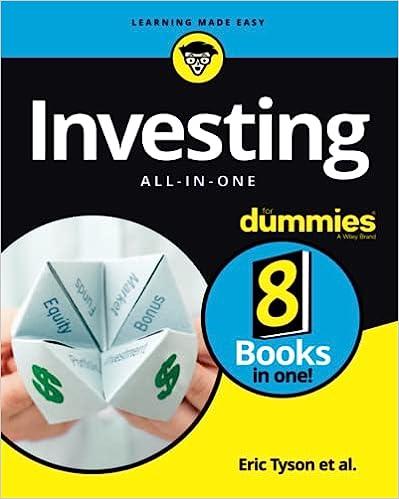Question
Convertible securities are bonds or preferred stock that, under specified terms and conditions, can be exchanged for common stock at the option of the holder.
Convertible securities are bonds or preferred stock that, under specified terms and conditions, can be exchanged for common stock at the option of the holder. Conversion of these securities does not provide new capital; debt (or preferred stock) is simply replaced on the balance sheet by common stock. However, reducing the debt or preferred stock will improve the firms financial position and make it easier to raise additional capital, but raising additional capital requires a separate action.
The conversion ratio ( ) is the number of shares of common stock that are obtained by converting a convertible bond or share of convertible preferred stock. The conversion price ( ) is the effective price paid for common stock obtained by converting a convertible security.
From the standpoint of the issuer, which of the following statements is a disadvantage of convertibles?
1. Because convertibles have low coupon rates, they require the firm to sell common stock at discount prices relative to prices that are currently prevailing. 2. Convertibles typically have a low coupon interest rate, and the advantage of this low-cost debt will be lost when conversion occurs. 3. If the company truly wants to raise equity capital and if the stock price does not rise sufficiently after the bond is issued, then the company will be stuck with debt rather than the desired equity.
________________ is/ are correct.
Drop down options for the blank are as follows:
Statement 1
Statement 2
Statement 3
Both Statements 1 and 2
Both Statements 1 and 3
Both Statements 2 and 3
All statements
Question 1: Hartley Enterprises recently issued convertible bonds with a $525 par value. The bonds have a conversion price ( ) of $25 per share. What is the bonds conversion ratio, CR? Round your answer to the nearest whole number.
___________
Question 2: Edwards Inc. recently issued convertible bonds with a $1,000 par value. The bonds have a conversion ratio (CR) of 45. What is the bonds conversion price ( )? Do not round intermediate calculations. Round your answer to the nearest cent.
___________
Step by Step Solution
There are 3 Steps involved in it
Step: 1

Get Instant Access to Expert-Tailored Solutions
See step-by-step solutions with expert insights and AI powered tools for academic success
Step: 2

Step: 3

Ace Your Homework with AI
Get the answers you need in no time with our AI-driven, step-by-step assistance
Get Started


